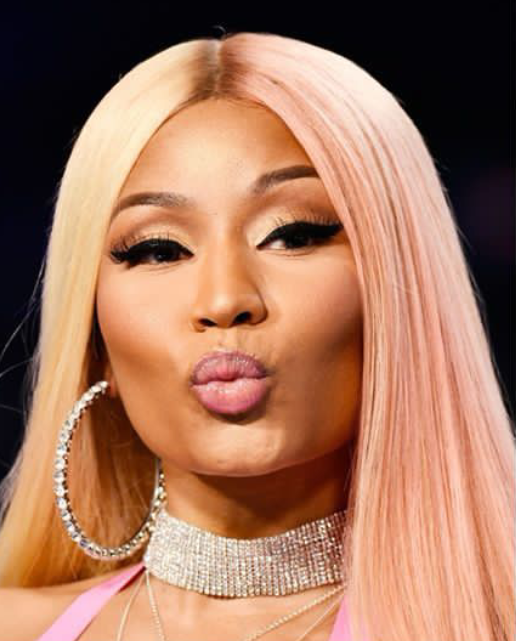
“I Find It Rude and Impolite, I Won’t Reply YOU” — Woli Arole Warns People Who Enter His DM With Just ‘Hi Arole’
Popular Nigerian comedian, actor, and filmmaker Woli Arole has sparked conversations on social media with a public announcement about his communication preferences, particularly on how people approach him in his direct messages and emails. The comic star, known for blending humor with life lessons, has taken to his verified Instagram
Popular Nigerian comedian, actor, and filmmaker Woli Arole has sparked conversations on social media with a public announcement about his communication preferences, particularly on how people approach him in his direct messages and emails. The comic star, known for blending humor with life lessons, has taken to his verified Instagram page to draw a line on what he considers a polite way of starting conversations. According to him, those who enter his inbox with the short greeting “Hi Arole” should not expect a response, because he finds such an approach rude, impolite, and undeserving of his attention. Instead, he insists that people should begin their messages with greetings like “Good morning” or “Good afternoon” if they truly want his attention and a respectful response.
The post, which he captioned with an air of firmness but also layered with his usual charisma, immediately set off reactions online. In his exact words, Arole wrote, “Please this information is for those people that message me either to show me their services or you need me for something. Please don’t enter my DM or Email with ‘Hi Arole.’ I find it rude and not polite. I will not reply YOU. I will prefer a ‘Good Morning or Good Afternoon’ instead. Thank you. This message is for those that start messages with ‘Hi.’ I won’t respond. Thank you.” The declaration has since been interpreted in different ways, with fans and social media users weighing in on whether the comedian’s preference is valid, exaggerated, or simply a matter of personal choice.
For some followers, Arole’s announcement came as a reminder that courtesy matters, both online and offline. In an age where digital communication dominates professional and personal interactions, the way people start their messages can create first impressions that either open doors or close them. By stating openly that a simple “Hi” does not meet his standard for politeness, Arole seems to be emphasizing that respect in communication should not be overlooked, even in casual exchanges. His point suggests that if someone truly values your time, they should put in the effort to acknowledge you properly, as they would in a face-to-face encounter.
However, the post did not come without its share of criticism. Some social media users argued that expecting people to use “Good morning” or “Good afternoon” in every interaction is unnecessary, especially considering that texting culture has evolved into short, quick, and less formal expressions. They questioned why a comedian, who often thrives on simplicity and relatability, would take issue with such a small matter. Others, however, defended him, pointing out that Arole is within his rights to set boundaries on how people address him, especially if they are reaching out for favors, collaborations, or business. After all, many celebrities and public figures have unique preferences for how they like to be approached, and in Arole’s case, politeness appears to be non-negotiable.
The post also highlights a bigger conversation around communication etiquette in Nigeria’s digital space. With WhatsApp, Instagram, and other social platforms dominating everyday interactions, many people have adopted short forms of greetings as acceptable openers. “Hi,” “Hey,” or even just an emoji are now seen as normal ways to start a conversation, particularly among younger users. But for others, especially those who view greetings as an important part of culture and respect, such shortcuts feel dismissive or lacking in warmth. Arole’s stance has therefore reignited debates on whether modern-day communication should completely abandon traditional greetings or strike a balance between efficiency and courtesy.
Interestingly, the comedian’s followers were quick to point out that his preference ties into his personality as someone who values cultural roots and respect for traditions. Nigeria, like many African societies, places a heavy premium on greetings as a symbol of respect. From Yoruba to Igbo to Hausa cultures, how you greet an elder, a colleague, or even a stranger can determine the tone of the entire conversation. To many Nigerians, starting a conversation with a polite greeting is not just courtesy but a moral duty. Arole’s insistence on “Good morning” or “Good afternoon” therefore aligns with this cultural backdrop, suggesting that even in the digital age, certain values should not be abandoned.
The announcement also sheds light on the pressures that celebrities face in managing their inboxes. Public figures like Arole receive countless messages daily, ranging from fans expressing admiration to people seeking financial assistance, and brands trying to pitch collaborations. With such volume, celebrities often have to develop filters or personal rules to determine which messages to take seriously. For Arole, one of those filters appears to be the use of polite greetings. If a message begins with what he deems disrespectful, he won’t bother reading further, saving him time and sparing his energy for more respectful interactions.
Meanwhile, reactions from fans reveal how deeply such a seemingly small issue resonates in everyday life. One user commented that Arole’s announcement made them rethink how they approach people in their own workplace, while another said it was unnecessary since a conversation should be judged by its overall content, not just the opener. Some joked about how they would start flooding his inbox with exaggerated greetings like “Respected honorable distinguished sir, good morning, good afternoon, good evening, and good night in advance,” to tease him about his high standards. These playful reactions, though humorous, also underline how much Nigerians love to dissect and banter about cultural norms, especially when tied to celebrities.
On a more serious note, Arole’s statement reflects a growing trend of public figures using their platforms to educate or guide their followers, even in matters that seem trivial. By addressing something as specific as greetings, he indirectly passes across a message about respect, intentionality, and the importance of small gestures in human interaction. While some may dismiss it as petty, others see it as a necessary reminder that even in a world dominated by short messages, emojis, and abbreviations, respect and cultural values should not be thrown away.
Arole’s announcement also serves as a form of personal branding. As a comedian who often mixes spirituality, culture, and humor in his craft, setting boundaries on how he wants to be addressed positions him as someone who values not just laughter, but also respect and order. This could further endear him to fans who share the same values, while also sparking curiosity and conversation among those who do not understand his perspective. Either way, the move keeps him in the spotlight and strengthens his connection with his audience.
Whether one agrees with Woli Arole or not, his stance reminds us that digital communication is not just about sending messages but about how those messages are framed. For some, a simple “Hi” is harmless, but for others, it is a lazy opener that feels dismissive. What cannot be denied, however, is that his announcement has already achieved what many entertainers strive for — capturing attention, sparking debate, and leaving people with something to talk about. In a world where celebrities are constantly competing for relevance, even a statement about greetings can trend, proving once again that in Nigeria’s vibrant social media space, no detail is too small to matter.
As the dust continues to settle around his post, one thing is clear: Arole has drawn a boundary, and he intends to stick to it. If you have something important to discuss with him, do not expect him to respond to a casual “Hi.” Instead, remember to start with a “Good morning” or “Good afternoon.” For the comedian, respect begins with how you open your mouth — or in this case, how you type your first words. And as his fans and critics continue to banter about the announcement, one lesson stands tall: sometimes the smallest words carry the biggest weight.
Share this post
Related Posts

Nicki Minaj Sends Love to Davido and Chioma as Their Fairytale Wedding Captivates the World
Global rap icon Nicki Minaj has joined the chorus of well-wishers celebrating Nigerian superstar Davido...

Shirt-Covered Slur: Racism Storm Erupts After Alleged Abuse of Vinicius Jr by Benfica’s Prestianni
A fresh racism controversy has erupted in European football after allegations surfaced that Benfica winger...

“Nothing Wey He Never Act”: Ruger Hails Osita Iheme as Fans Renew Calls for Nollywood’s Most Versatile Star to Go Global
Nigerian singer Ruger has sparked fresh conversations around talent, longevity, and global potential in Nollywood...